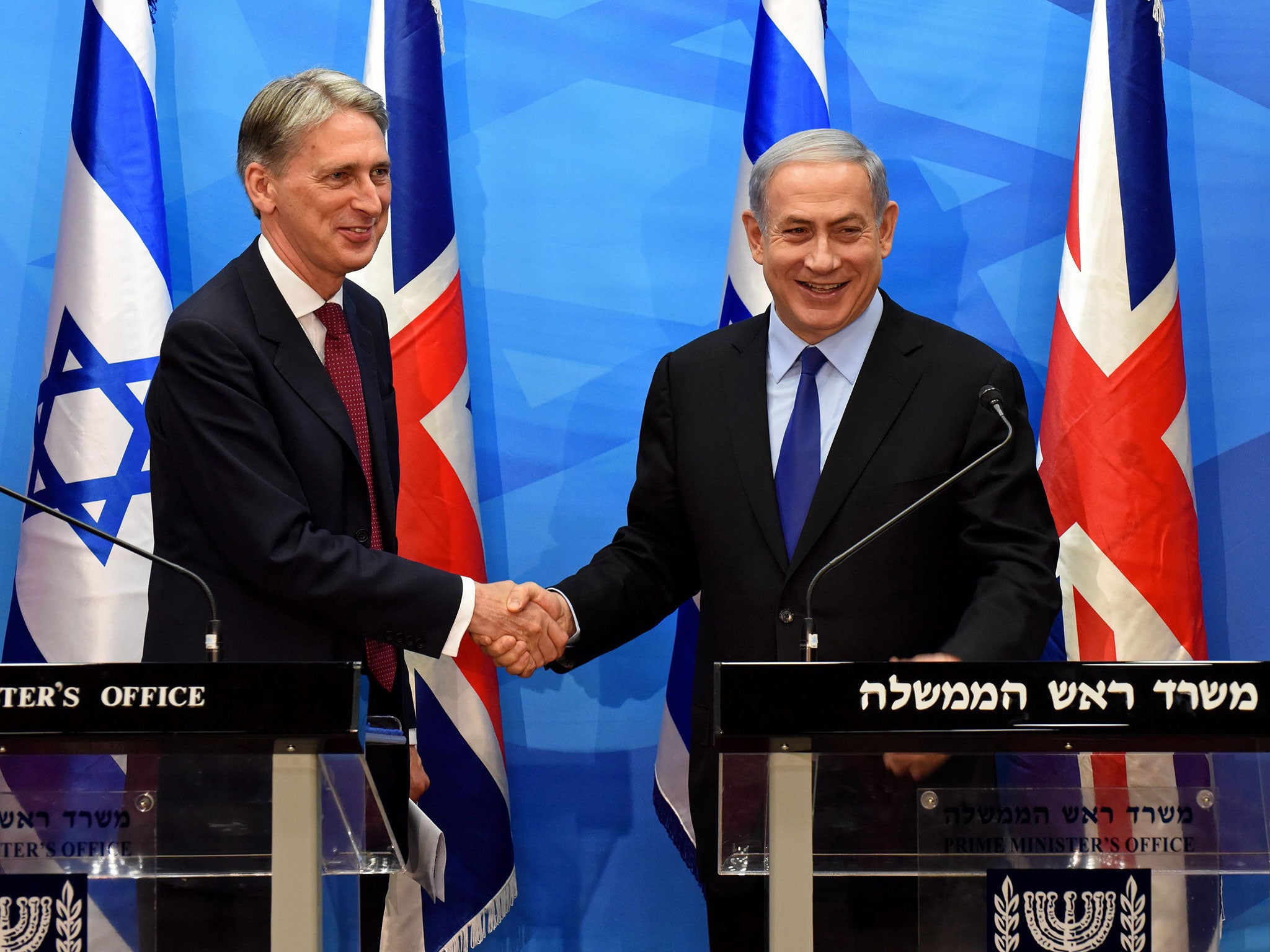Iran nuclear deal: British Foreign Secretary exchanges barbed remarks with Benjamin Netanyahu over pact on visit to Israel
The Israeli PM said it was 'perplexing' that the agreement does not deal with Iranian calls to annihilate his country

Your support helps us to tell the story
From reproductive rights to climate change to Big Tech, The Independent is on the ground when the story is developing. Whether it's investigating the financials of Elon Musk's pro-Trump PAC or producing our latest documentary, 'The A Word', which shines a light on the American women fighting for reproductive rights, we know how important it is to parse out the facts from the messaging.
At such a critical moment in US history, we need reporters on the ground. Your donation allows us to keep sending journalists to speak to both sides of the story.
The Independent is trusted by Americans across the entire political spectrum. And unlike many other quality news outlets, we choose not to lock Americans out of our reporting and analysis with paywalls. We believe quality journalism should be available to everyone, paid for by those who can afford it.
Your support makes all the difference.The visiting British Foreign Secretary, Philip Hammond, and Israeli Prime Minister, Benjamin Netanyahu, exchanged a series of barbed remarks in a meeting that underscored the sharp differences between Israel and world powers over the nuclear agreement with Iran.
Mr Netanyahu termed the deal “the failure of diplomacy” and was dismissive of remarks by Mr Hammond that Israel would have rejected any agreement and prefers to be in an ongoing stand-off with Iran. “Israelis know better than anyone else the cost of permanent conflict with Iran and it is wrong to suggest Israel wants such an outcome,” he said. “We seek a genuine and effective diplomatic solution. But Israelis also know exactly what would happen if we ever let our guard down.”
Mr Netanyahu termed it “perplexing” that the agreement does not deal with Iranian calls to annihilate Israel, to which Mr Hammond responded: “We have always been clear the deal was about the nuclear file.”
While Mr Netanyahu said the agreement “paves the terrorist regime’s path to the bomb”, Mr Hammond stressed that “we would not have agreed to the deal unless we were sure we had robust measures in place to control Iran’s nuclear program”.
Mr Hammond urged that despite the differing views on the agreement, Israel should work with the UK to ensure the deal is fully implemented and “effectively monitored”.
Referring to Israeli arguments that the agreement will fuel Iranian efforts to achieve regional hegemony, Mr Hammond said Iran’s regional conduct “will have to be dealt with in the months and years to come. We are not naïve about this.”
A poll taken by Israel’s Channel Ten television station showed the overwhelming majority of the public shares Mr Netanyahu’s scepticism of the agreement. Seventy per cent of respondents oppose it while only 10 per cent support it, with 20 per cent voicing no opinion. Sixty per cent of respondents thought Mr Netanyahu should lead a campaign in congress to foil approval of the deal, while 20 per cent opposed this.
Meanwhile, Haaretz reported that the Israeli President, Reuven Rivlin, is mediating contacts between Mr Netanyahu and the leader of the opposition, Isaac Herzog, about the possibility that the latter’s Zionist Union party will join the coalition. The Iran agreement could provide Mr Herzog with a rationale for joining the government but senior Zionist Union leader Tzipi Livni told Israel Radio that the party has no intention of joining the government.
Join our commenting forum
Join thought-provoking conversations, follow other Independent readers and see their replies
Comments